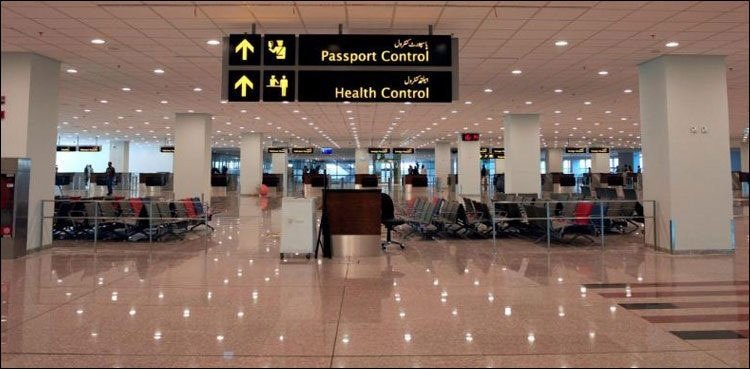Govt to Hand Over Islamabad Airport to UAE Without Bidding Process

In a major policy shift, the federal government of Pakistan has decided to hand over Islamabad Airport to UAE without conducting the usual open bidding process. This development has triggered strong reactions from opposition parties, civil society groups, and aviation experts.
The move is part of the government’s broader plan to outsource airport operations and improve service quality under the Special Investment Facilitation Council (SIFC) framework. However, skipping the competitive bidding process has raised serious concerns about transparency, accountability, and national interest.
Islamabad Airport to UAE: What Has Been Decided?
According to official sources, the government is in the final stages of signing a government-to-government (G2G) agreement with the United Arab Emirates (UAE). The deal will allow a UAE based company to take over the management and operation of Islamabad International Airport for a fixed term.
The arrangement bypasses the Public Procurement Regulatory Authority (PPRA) rules, which typically require a transparent and competitive bidding process for all government contracts. This move is being justified by the government as an urgent economic reform to attract foreign investment.
Why Islamabad Airport?
Islamabad International Airport is one of Pakistan’s most important airports. Opened in 2018, it serves as a gateway to the capital and handles millions of passengers annually. The airport has a modern infrastructure but has faced frequent criticism for mismanagement, inefficient operations, and poor passenger services.
By outsourcing management to a foreign operator, the government hopes to improve efficiency, reduce losses, and bring in modern service standards. However, the method of doing so directly awarding the contract has become a subject of national debate.
What Is the Government Saying?
Government officials argue that outsourcing airport operations is part of Pakistan’s economic recovery plan under the SIFC, which facilitates fast-track investment from friendly nations like the UAE, Saudi Arabia, and China.
According to Aviation Minister Khawaja Saad Rafique, “The aim is not to sell the airport but to improve operations. Ownership will remain with Pakistan. We are only outsourcing management to bring in international standards.”
He emphasized that the Islamabad Airport to UAE agreement is part of a larger vision to modernize Pakistan’s aviation sector.
Transparency Concerns Emerge
Despite the government’s assurances, critics are not convinced. Opposition leaders and transparency watchdogs are raising alarms over the lack of an open bidding process.
Former Aviation Secretary Shahrukh Nusrat stated, “Skipping bidding sets a dangerous precedent. We must ensure national assets are not handed over without public scrutiny.”
Transparency International Pakistan (TIP) also expressed concern, calling on the government to disclose the terms of the agreement, the selection criteria, and the financial benefits.
Legal experts argue that bypassing PPRA rules could invite legal challenges unless the government enacts special exemptions through parliament or presidential ordinance.
UAE’s Growing Role in Pakistan
The Islamabad Airport to UAE deal reflects the growing economic and diplomatic ties between the two nations. Over the past few years, the UAE has emerged as one of Pakistan’s largest foreign investors and trading partners.
From real estate to logistics and now aviation, UAE companies have been showing interest in Pakistan’s strategic sectors. The government believes these partnerships can bring in much-needed capital and expertise.
However, experts caution that such partnerships must be structured with full transparency to avoid the perception of favoritism or backdoor deals.
Public Reaction and National Interest
The public reaction to this development has been mixed. Some see it as a practical move to improve poor airport services, while others view it as a short sighted decision that compromises sovereignty.
Social media users have expressed frustration over lack of consultation and fear that national assets are being handed away too easily.
Economist Dr. Farrukh Saleem noted, “We must ask: what are we gaining in return? Will the deal improve services, or are we just selling control for temporary cash?”
The government has yet to release a full breakdown of the financial model, revenue-sharing agreement, or duration of the management contract.
What Happens Next?
Reports suggest that the formal agreement may be signed within the next few weeks. A team of experts from the UAE has already visited Islamabad International Airport and completed their initial assessments.
If finalized, this will be the first time in Pakistan’s history that a major international airport is being outsourced under a direct deal without open competition. The move may pave the way for similar agreements for other airports, including Lahore and Karachi.
However, the Islamabad High Court may also take up the case if any public interest litigation is filed. Legal, financial, and operational implications will become clearer once the full terms of the Islamabad Airport to UAE deal are made public.
The decision to transfer Islamabad Airport to UAE without a bidding process is a bold yet controversial move. While the goal of improving service and attracting investment is important, the approach must remain transparent and accountable.
With growing public interest and legal scrutiny, the government must act responsibly and ensure that national interests are safeguarded. The coming weeks will be critical in determining whether this deal becomes a milestone in Pakistan’s aviation reform or a cautionary tale.




